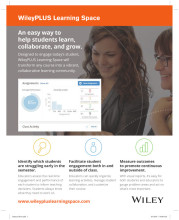Administering questionnaires
16 important questions on Administering questionnaires
Advantages personally administered questionnaires
- Doubts can be clarified.
- Less expensive when administered to groups of respondents.
- Almost 100% response rate ensured.
- Anonymity of respondent is high.
Advantages of a mail questionnaire
- Wide geographic regions can be reached.
- Token gifts can be enclosed to seek compliance.
- Respondent can take more time to respond at convenience. Can be administered electronically, if desired.
Disadvantages of mail questionnaires
- Cannot clarify questions.
- Follow-up procedures for non-responses are necessary.
- Higher grades + faster learning
- Never study anything twice
- 100% sure, 100% understanding
Advantages of electronic questionnaires
- Can reach globally.
- Very inexpensive.
- Fast delivery.
- Respondents can answer at their convenience like the mail questionnaire.
- Automatic processing of answers.
Disadvantages of electronic questionnaires
- Sampling issues.
- High non-response.
- Not always possible to generalize findings.
- Respondent must be willing to complete the survey.
- People find invitations via email rude and offensive; emails are deleted or people complain.
Guidelines for questionnaire design (3 areas)
- Second area refers to the planning of issues with regard to how the variables will be categorized, scaled, and coded after receipt of the responses.
- Third area pertains to the general appearance of the questionnaire.
All areas help to minimize the bias.
Principles of wording to be followed while designing a questionnaire
Cross-cultural data collection
Advantages face-to-face interviews
- Offer the opportunity to establish rapport with the interviewees, and help to explore and understand complex issues.
- Many ideas ordinarily difficult to articulate can also be brought to the surface and discussed during such interview.
Disadvantages face-to-face interviews
- Can be expensive if a large number of subjects are involved.
Advantages telephone interviews
- Efficient way of collecting data when one has specific, structured questions to ask, needs the responses quickly, and has a sample spread over a wide area.
Disadvantages telephone interviews
- Interviewee can block the call.
Advantages observational studies
- Data obtained are rich and uncontaminated by self-report bias.
Advantages personally administering questionnaires.
- Provide clarification sought by the respondents on the spot.
- Collect the questionnaire immediately after they are completed.
Disadvantages personally administering questionnaires.
Ethical behavior of respondents
2. The respondent also has an obligation to be truthful and honest in the responses. Misrepresentation or giving information, knowing it to be untrue, should be avoided.
The question on the page originate from the summary of the following study material:
- A unique study and practice tool
- Never study anything twice again
- Get the grades you hope for
- 100% sure, 100% understanding
































